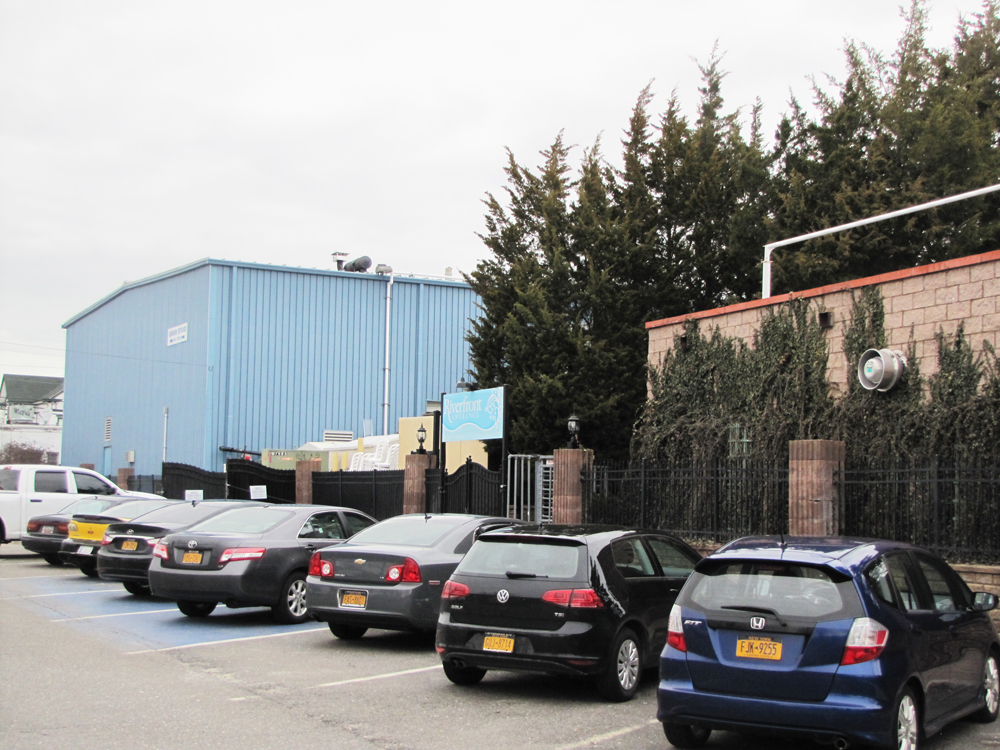Town eyes leasing parking spaces to alternative energy creator

Riverhead Town and Atlantis Holdings are both looking to benefit from a Connecticut company’s plan to possibly build fuel cells on a portion of the town parking lot adjacent to Atlantis’ Long Island Aquarium.
If the plan comes to fruition, the town would get revenue from leasing seven parking spaces and Atlantis would benefit by saving on its energy costs through using surplus energy generated by the fuel cells.
The fuel cell structure requires either a 30-by-80 foot footprint or a 40-by-6 foot footprint, officials said.
According to Fuel Cell Systems Explained, an academic paper released through Wiley Global Research, a fuel cell is a type of renewable energy device that converts hydrogen fuel into electrical energy by burning off or combusting the element.
Town Board members had not decided how much the rent for the parking spaces would be, but they seem to be thinking big.
“My sense of this is that if we do this, it’s of significant benefit to the parking district,” Supervisor Sean Walter said. “We will talk about (the amount of the rent) in executive session because it’s a contractual matter.”
Town engineer Ken Testa estimated in an interview afterwards that the monetary value to the aquarium of getting to use the excess heat generated by the fuel cells would be about $120,000 per year in energy cost savings
The overall proposal was discussed at Thursday’s Riverhead Town Board work session.
According to Mr. Testa, the Long Island Power Authority had issued a request for proposals for renewable energy generators in 2014 and a Connecticut-based company called Fuel Cell Energy ended up being awarded three contracts in Suffolk County for 1.4 megawatt fuel cells burning natural gas.
Mr. Testa said the energy generated by 1.4 megawatts is enough to power about 300 homes for a year.
“One of the conditions of the awards that the thermal energy left over after the electricity generation be used for a beneficial use, and not just blown into the atmosphere,” Mr. Testa said.
In one of the three projects proposed by Fuel Cell Energy, the original plan was to have the so-called “waste heat” — energy created by the process that is technically going to waste since it wouldn’t be used — be used by the Crescent Duck Farm in Aquebogue.
But the agreement with Crescent Duck Farm fell apart, and Fuel Cell Energy is now looking for another location, near to Aquebogue, to use the waste heat, Mr. Testa said.
In stepped the Long Island Aquarium.
“We’ve been looking at fuel cells in general because NYSERDA (New York State Energy Research and Development Authority) had million dollar grants out there,” said Bryan DeLuca, the executive director of Atlantis Holdings, which owns the complex containing the aquarium, the Hyatt hotel and Sea Star Ball Room, the Treasure Cove Marina and Jerry and the Mermaid’s restaurant.
The aquarium spends about $72,000 per year in energy costs, Mr. DeLuca said. But it doesn’t have enough space available to house the fuel cell structure.
So the town has proposed leasing several parking spaces adjacent to the aquarium to Fuel Cell Energy, and then the excess heat produced by the fuel cells could be used for the aquarium.
Mr. DeLuca said the excess energy could be used for heating and cooling within the aquarium.
Officials also said they would require the giant fuel cells to be screened from view if the project moves forward.







